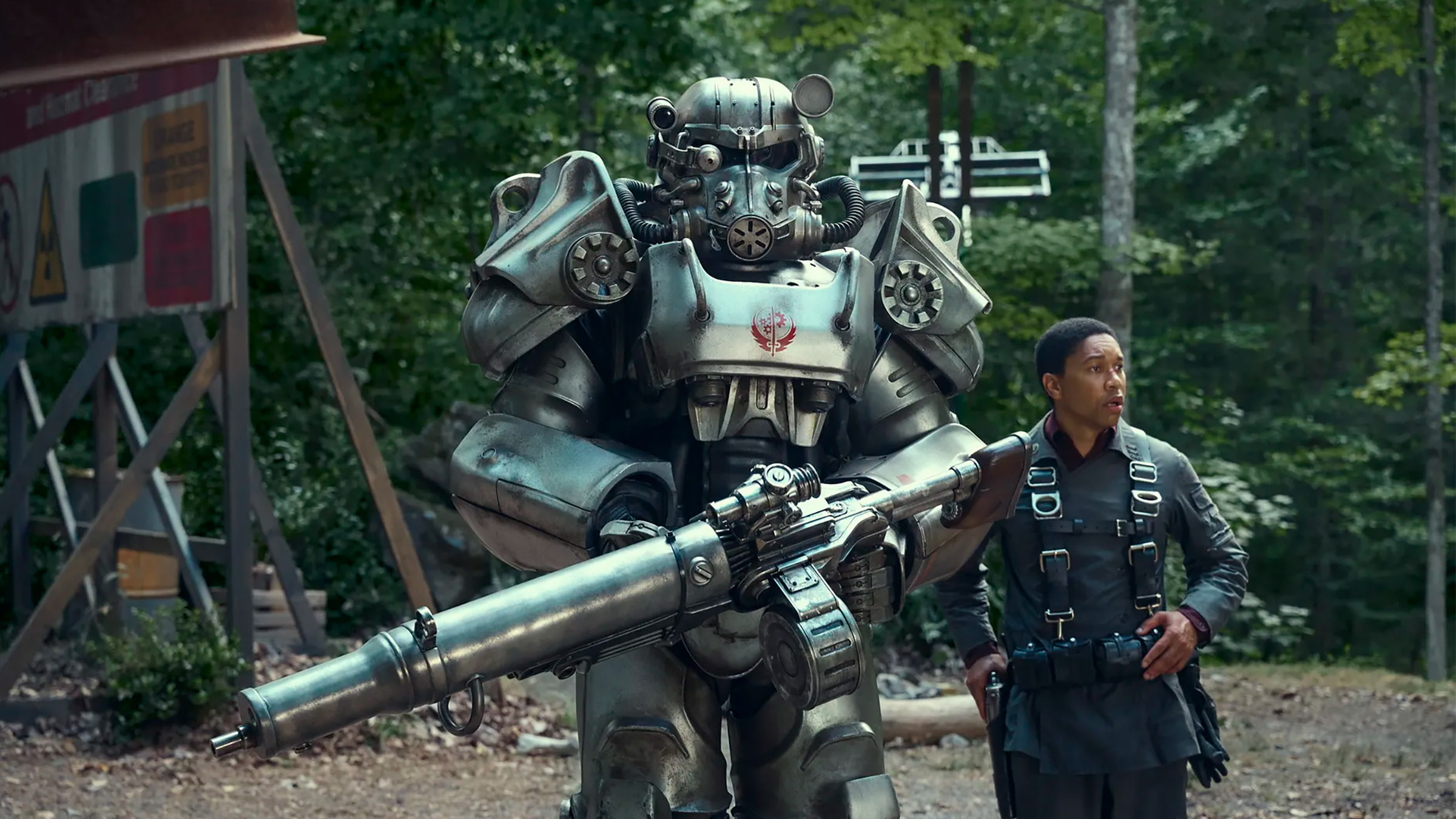[Image at top courtesy of JoJo Whilden/Prime Video. Copyright: © 2022 Amazon Content Services LLC]
If you look closely at the biggest TV releases of 2024, you may notice a common thread. Whether you’re excited for the return of big-budget favourites The Last of Us and The Witcher, for adventurous animations Arcane and Knuckles, or for the arrival of dystopian drama Fallout, these seemingly different stories all have one thing in common: they’re based on video games. Once considered a difficult medium to adapt, the world of gaming has recently become a go-to resource for television studios looking to make the next unmissable show. So, how did we get here?
8-Bit Beginnings
The console boom of the ‘90s was a huge time for the nascent video gaming industry, with Nintendo, SEGA and later Sony battling for supremacy with the best devices and most absorbing games, from The Legend of Zelda to Doom. While the games of the day were revolutionary, they concentrated on player input rather than intricate storytelling. As addictive as Super Mario Bros or Sonic the Hedgehog became for generations of gamers, the stories of the original games didn’t quite lend themselves to live-action film projects. In the movie world, properties like Super Mario, Street Fighter and Double Dragon would suffer as a result. Though several games, particularly Nintendo’s Pokemon, would enjoy second lives as short-form cartoons, games in general were considered their own medium that, aside from a few exceptions, didn’t translate well.
As the 2000s progressed, both TV and gaming evolved. The addition of Xbox to the landscape gave us games like Halo, while Grand Theft Auto and other titles popularised the notion of open-world console games in which the central story had to be much bigger in order to sustain the world. When game design advanced by leaps and bounds, so, too, did the storylines that came with them. By the time the latest generation of console games arrived, we were used to titles like Red Dead Redemption 2, The Witcher and The Last of Us, all of which had the budget, scale and narrative intelligence of anything Hollywood had to offer.
Entering The Stream
Slowly but surely, dramatic TV shows based on games became a regular part of our viewing routine. Streaming giant Netflix arguably kicked things off by spending big bucks to cast former Superman Henry Cavill in The Witcher – a tale based on a book series, but popularised by the video games that were adapted from the books. Then, cult hits like Arcane (the 2021 series based on League of Legends), British crime thriller Gangs of London and Paramount’s Halo adaptation (produced by none other than Stephen Spielberg) established video game stories as a major part of the TV conversation. Television had already evolved through the 2010s to rival cinema with darker, more dramatic storylines and bigger budgets, so the time was right for the long-form storytelling of gaming and television to combine.
Possibly the biggest and most recent breakthrough in this regard is 2023’s The Last of Us. The 2013 PlayStation game of the same name was a hit phenomenon, winning multiple Game of the Year awards and being re-released across new generations of consoles, with an estimated 20 million copies of the first game sold by 2018. Its heartbreaking storyline, chronicling the dangerous journey of a mercenary and a young girl across a landscape destroyed by a zombie apocalypse, seemed tailor-made for a prestige TV show – and the makers of hit drama Chernobyl did just that.
Masterfully maintaining the tension, emotion and thrills of the game, The Last of Us TV show won eight Emmys and had a combined viewership of 30 million people for the finale – the biggest audience for broadcaster HBO since Game of Thrones. It’s no surprise, then, that more shows based on games are getting the greenlight.
The highly anticipated series Fallout hits screens in April 2024; another post-apocalyptic show, this time the story deals with the survivors of nuclear war in an alternative history. Starring Maleficent’s Ella Purcell and award-winning actor Walton Goggins, it has a blockbuster budget and high expectations – particularly as it’s being developed by Jonathan Nolan, the man behind Westworld and a co-writer on films Interstellar and The Dark Knight with his brother, director Christopher Nolan.
Another reason for the game-to-TV trend can be seen here, given that the Fallout games – a huge success since the first instalment in 2007 – come with a massive built-in audience who adore the retro-futuristic aesthetic and satirical themes.
TV’s Cheat Code
“I think we’ve seen a noticeable uplift in the quality of both video game movies and films over the past five years,” says George Osborn, video game expert and writer behind the Substack publication Video Games Industry Memo.
“I think TV adaptations work well because they strike a better balance between telling the main story and being willing to step beyond it when the moment is right. Even really linear video games, like The Last of Us, still reward you for taking a moment to pause and explore the world around you. While a film can do that to some extent, The Last of Us TV show demonstrated through the ‘Bill’ episode the value of how taking a moment to reflect can really enhance your connection”.
Osborn concurs that it’s no coincidence The Last of Us is leading the game-to-TV revolution: “The original release of The Last of Us on PS3 was definitely a moment where people realised that Triple A video games could turn their enormous resources into creating emotionally resonant stories performed by actors on the top of their game,” he explains – although it’s not just the big-budget releases packing an emotional punch.
“I think that independent games have, in many ways, expanded the boundaries of what we expect from video game storytelling,” he continues. “Undertale managed to show that games can be both funny and deeply poignant. Night in the Woods told an emotional story that’s as much about valuing the people in your life as it is about the decline of small-town America. What Remains of Edith Finch turned narrative storytelling into a BAFTA award-winning experience. The breadth of these kinds of stories have positively challenged what we think of when we think about video game storytelling”.
With Fallout releasing to a lot of anticipation, what games could continue this trend of must-see TV adaptations? “I think the obvious answer here is Baldur’s Gate 3,” Osborn replies, referring to the award-winning 2023 fantasy game. “It’s universally accepted to be wonderfully written, and delivered memorable story moments and performances across its cast. And given that it does feature a sexy vampire called Astarion, it could nicely tap into the Buffy: The Vampire Slayer fandom.”














Sorry, the comment form is closed at this time.